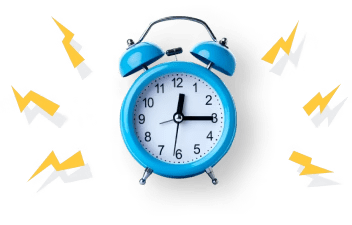Nurses often have an overly packed schedule and are seen juggling work and family. It’s nearly impossible to conduct adequate research like NHS fpx 4000 assessment two between these tasks. This article will discuss practical, quick, and easy library research tips tailored explicitly for busy nurses.
What Is Library Research?
Library research is about using library materials, such as books, journals, and online databases, to find the necessary information for school or work. For nurses, it is important to keep up with the latest medical news and the best ways to care for patients.
Essential Library Research Tips for Busy Nurses
During research, it is essential to focus entirely on it. For nursing, library research requires even more attention to detail. To solve the most hectic task in nursing, we have had a list of tips, or you can also say shortcuts for cutting the crap and completing 8-hour long research into digestible 3-hour research. Here are some quick and easy library research tips for all busy nurses to save you time.
Start with a Clear Research Plan
First thing first if you still need to create a roadmap for your research, wait to jump to writing. Before writing it down on paper, you must write it in your imagination. Only then can anyone do research the right way. Create a clear and concise research plan to streamline the process. Follow these tricks to do this correctly.
Identify Key Topics
List the main topics and subtopics related to your assignment or research question. For example, if you’re working on the NHS-FPX 4000 Assessment 2, you might focus on patient outcomes, clinical practices, and healthcare policies. This will help you stay focused and cover all the necessary points.
Set Research Goals
Decide what you want to achieve with your research. Are you looking to find specific data, understand a concept better, or gather general information? Setting clear goals will help you stay on track and avoid wasting time on irrelevant details.
Utilize Advanced Search Techniques
Most students waste their time just because they must learn to conduct research. Knowing the correct terms is the best and easiest way to do this. If anyone becomes a master of keywords and relevant words, that person can save tons of time. This trick is helpful for the most pertinent results on any nursing topic.
- Boolean Operators
Use Boolean operators like AND, OR, and NOT to refine your searches. For instance, searching for “nursing AND patient outcomes” will give you results that include both terms. This helps narrow down the results to what’s most relevant to you.
- Truncation and Wildcards
Use truncation (e.g., nurs*) and wildcards (e.g., wom? n) to find word variations. This can help you catch different forms of a word, like ” user,” uses, “using,” or “oman” and ” omen.”It’s A handy trick to ensure you get all relevant information.
Efficient Use of Library Databases
In a library, nurses can find many databases regarding any topic. Using library databases efficiently can make a huge difference in your research process. Choose databases specific to nursing and healthcare, such as PubMed, CINAHL, and Cochrane Library. These databases are filled with high-quality, peer-reviewed articles relevant to your field. They will help you find credible and up-to-date information quickly.
Use Filters
Use search filters to narrow down your results by publication date, type of study, and more. This can help you sift through large amounts of information and find precisely what you need without getting overwhelmed. Filters are your best friends when managing a large volume of search results.
Check out the sample papers of the NHS FPX 4000 assessment.
- NHS FPX 4000 Assessment 2 Applying Library Research
- NHS-FPX4000 Assessment 3 Applying Ethical Principles
- NHS-FPX4000 Assessment 4 Analyzing Healthcare Issues
How to Use a Library for Research?
There are just a few steps to mastering the art of library research. You can see the difference once you acknowledge these steps and start applying them. Using a library for research is extremely easy and can save you a lot of time.
Online Library Resources
First, familiarize yourself with your library’s website—most libraries have tons of online resources you can access from anywhere. Look for digital databases like PubMed or CINAHL to find articles and research papers quickly. Don’t forget about e-books and online journals. Your library probably has a bunch of these, and they’re great for deep dives into specific topics.
Physical Library Resources
Even with all the online stuff, remember the actual physical library. Sometimes, the best info is in books and journals you can only find in person. Libraries contain textbooks, reference books, medical procedures, and patient care guides. These can give you detailed info that you might need help finding online. The library is also a great place to focus. If you need some quiet time to research, heading to the library can help you get in the zone without distractions.
Library Search Engines
Library search engines are powerful tools that help you quickly find what you need. Here is a simple way to use them for better results.
EBSCOhost and JSTOR
Search engines like EBSCOhost and JSTOR let you search multiple databases at once. This means you can find many articles from different sources in one place. Learning how to use these tools will save you time and get you better results.
Using Filters
Make sure to use the search filters. Filters help you narrow down results by date and type of study. This way, you can handle the results and focus on what’s most relevant.
Search Techniques
Learn some basic search techniques to improve your efficiency. Use keywords related to your topic, apply Boolean operators (AND, OR, NOT) to refine your searches, and use truncation and wildcards to catch different word variations. These tricks will help you find what you need faster.
Applying Library Research in Nursing
So, what exactly should you do after all the steps mentioned above? Well, it’s not just about researching. After all the research you have done, it’s now time to apply it. Library research is essential for nurses. In the nhs fpx 4000 assessment 2 of applying library research in nursing, you learn everything you need about evidence-based research and more.

You can also use this step-by-step guide for applying library research in nursing.
Know What You Need to Do
First, make sure you understand the assignment requirements. Read the instructions and know what topics you need to cover and what results you need to show.
Break Down the Topics
Split the assignment into critical areas for research, such as patient care strategies, clinical practices, and healthcare policies. This will help you focus your study.
Make a Research Plan
Create a plan that outlines your steps. Decide what info you need and where you might find it. Set a timeline to keep yourself on track.
Use Library Resources
Use your resources to gather reliable information. Check out online databases, academic journals, and books. Libraries often have access to databases like PubMed, CINAHL, and Cochrane Library, which are helpful for nursing research.
Ask Specific Questions
Start with specific research questions related to your topic. These questions will guide your search. For example, if you’re looking at improving diabetic care, focus on questions about the effectiveness of specific treatments.
Keep Your Findings Organized
Organize the studies and articles you find. Summarize the key points and outcomes of each one. This will make it easier to reference them in your assignment.
For a detailed guide on how to make a structure for a case study, check out this article “How To Structure Your Nursing Case Study”
Bottomline
For busy nurses, it’s essential to nail the art of researching and applying those. Any nursing student can quickly complete this hesitating task by following the mentioned tips and tricks, saving lots of time. Do solid scholarly research and crush assignments like the NHS-FPX 4000 Assessment 2. Use intelligent search techniques, pick suitable databases, and always check your sources. With practice, you’ll get great at finding and using the best info, strengthening your nursing skills and patient care.









